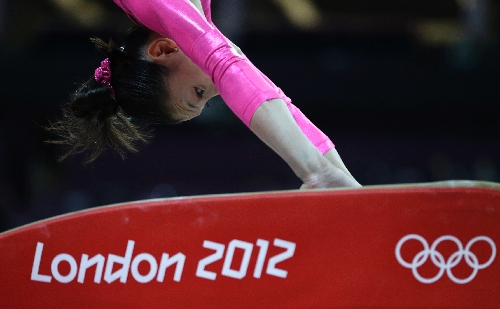London welcomes world on a budget

LONDON — Four years ago, Sebastian Coe stood in a conference room at the main press center in Beijing and spoke about the kind of Olympics that China was in the process of hosting.
"The International Olympic Committee recognizes this will be the last edition of a games which is going to look and feel like this," Coe said that August afternoon. "We won’t attempt to equal the scale and stature of such an extravaganza."
It’s a good thing. London wouldn’t stand a chance.
Beijing was about the world witnessing how a global power defined by communist rule would hold up under the intense scrutiny of a universal stare, about spending billions of dollars on impeccable preparation and pristine facilities to keep the focus on sport and not its soiled image in regards to human rights.
London is about throwing the biggest party it can at a red-tag sales price.
Beijing spent $44 billion in hosting the games.
London will spend about $15 billion. Its initial bid to host: $5 billion.
It will welcome the Olympics for a third time tonight when the 2012 Games begin with a three-hour opening ceremony that will feature a British countryside scene and segments involving icons David Beckham and Paul McCartney.
Queen Elizabeth II will open the celebration, and the betting favorite for which color hat she will wear is blue at 3-1. A smarter play at one of the country’s 9,000 betting shops might be the 6-1 odds that the Olympic Village for athletes will run out of condoms before the closing ceremony commences Aug. 12.
Heck. That might happen by Monday.
Tonight’s spectacle is said to be inspired by Shakespeare’s "The Tempest," although organizers hardly desire a games defined by either tragedy or comedy. Instead, this is London’s moment to calm social tension while revitalizing a large portion of the city battered by what is now a second recession since a financial crisis that has seen the United Kingdom borrow more in the past seven years than at any time in its history.
These are hard times, but the country isn’t broke. Well, not completely.
The U.K. hosted its first Olympics in 1908, when it stood as a superpower. It hosted again 40 years later, when post-war rationing meant no new venues were constructed for the games.
England today is a nation very much embroiled in the debt crisis across Europe, meaning its focus on these games will be far more about promoting symbols of peace and fellowship and the greatness of athletic achievement than any attempt at staging an event near the immense gala that was Beijing.
"Getting the games for London has been the fulfillment of a dream," Coe told British reporters earlier this week. "It is one which I truly believe can change the lives of hundreds of thousands of young people for the better. But in the end, nothing can quite compare with winning your first Olympic gold medal. The terrible truth is that without that small round object hanging from a ribbon around your neck, you are incomplete as an athlete."
Translation: London will keep the focus on sport and not scrimping.
Coe is chairman of the London organizing committee and a former middle distance runner who won four Olympic medals, the man who eight years ago convinced the IOC that his country could stage a first-class event by regenerating parts of East London into a place that will use the games to create social and economic strides over the next two decades.
Which is all fine and good, especially if Michael Phelps and Usain Bolt and other stars hold up their end.
The games will feature 10,000 athletes from 200 countries, but none will be followed closer than the American swimming giant and 14-time gold medalist competing in his final Olympics and the Jamaican sprinter who demolished the 100- and 200-meter fields in Beijing.
If those staging the games can keep track of each athlete’s correct country – soccer officials have already used the South Korean flag for North Korean players and identified Welsh midfielder Joe Allen as English – the level of play on all fields should be among the best in Olympics history.
This is also being promoted as the Social Media Games, where athletes will connect to fans and promote sponsors like never before. There were 100 million Facebook members during the 2008 Games; there are 900 million today. More than 6 million had the chance to follow tweets from Beijing; more than 140 million will from London.
In this way, it will be better than China. In others, such as former gymnastics star Li Ning being lifted to the top of a stadium during the opening ceremony and then traveling around its perimeter on a cable as if jogging on the moon, perhaps not.
But what it might lack in the pizzazz of four years ago, London hopes to make up for in the competition of today.
"Let’s get on with it," Coe said this week. "We’re ready."
Let the red-tag sales games begin.
Las Vegas Review-Journal sports columnist Ed Graney can be reached at egraney@reviewjournal.com or 702-383-4618. He can be heard from 11 a.m. to 2 p.m. Monday through Friday on "Gridlock," ESPN 1100 and 98.9 FM. Follow his Olympic blogs at lvrj.com/blogs/graney or on Twitter: @edgraney.